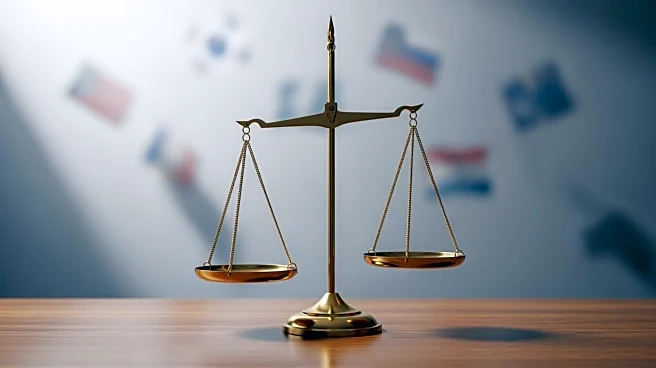What's Happening?
The U.S. Supreme Court is examining the legality of President Trump's use of the International Emergency Economic Powers Act (IEEPA) to impose global tariffs. The case has raised concerns about the scope
of presidential power and its implications for the economy. During the arguments, Chief Justice John Roberts and other conservative justices questioned the administration's interpretation of the IEEPA, which has never been used to justify tariffs before. The businesses challenging the tariffs argue that they are a form of tax paid by American consumers, not a regulation of imports. The case could have significant implications for presidential authority and economic policy.
Why It's Important?
The outcome of this case could redefine the limits of presidential power in economic matters, particularly regarding the imposition of tariffs. A decision against the administration could lead to significant economic repercussions, including potential refunds of nearly $90 billion in tariff revenue. The case also highlights the ongoing debate over the balance of power between the executive branch and Congress, especially in the context of foreign policy and trade. The Supreme Court's decision could set a precedent for how emergency powers are interpreted and applied in future administrations.
What's Next?
If the Supreme Court rules against the administration, it could lead to a complex process of determining which businesses are entitled to tariff refunds. The decision may also prompt Congress to clarify the scope of presidential powers under the IEEPA. The case could influence future administrations' approach to using emergency powers for economic policy, potentially leading to more stringent checks on executive authority. The ruling may also impact ongoing trade negotiations and the broader U.S. economic strategy.
Beyond the Headlines
The case raises broader questions about the use of emergency powers and the potential for executive overreach. It also highlights the challenges of balancing national security concerns with economic policy. The debate over tariffs and their impact on consumers underscores the complexities of global trade and the interconnectedness of the U.S. economy. The case may also influence public perceptions of presidential authority and the role of the judiciary in checking executive power.











